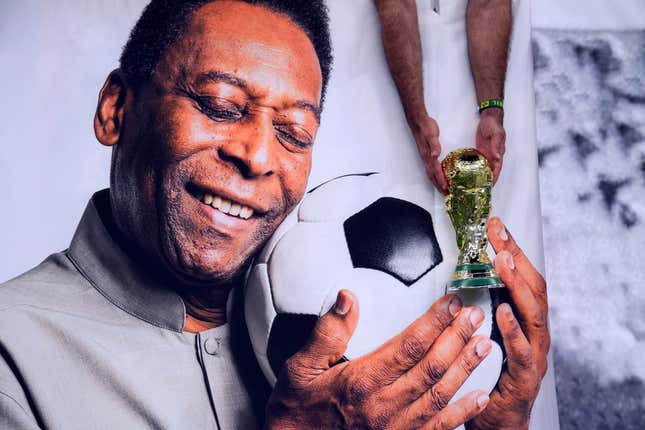
Pelé, the Brazilian soccer legend who won three World Cups and became the sport’s first global icon, died Thursday at the age of 82. “Everything that we are, is thanks to you,” his daughter Kely Nascimento wrote in a post on Instagram, under an image of family members holding Pelé’s hands. “We love you infinitely. Rest in peace.” Pelé was admitted to a hospital in São Paulo in late November for a respiratory infection and for complications related to colon cancer, according to CNN. Last week, the hospital said his health had worsened as his cancer progressed. He died on Thursday from multiple organ failure due to the progression of colon cancer, according to a statement from Albert Einstein Hospital.
The Root founder and Director of the Hutchins Center for African and African American Research at Harvard University, Henry Louis Gates, Jr., remembers Pelé this way: “Pelé introduced the art of African dance to the world’s most democratic sport, and the result was a sublime blend of physical prowess, professional acumen and shrewdness, and the sheer magic of poetry-in-motion. His trademarked bicycle kick tested the laws of gravity on the soccer pitch long before Michael Jordan decided to give Newton a run for his money on the basketball court. Pelé—a prince both on and off the pitch— was the world’s greatest player of the world’s most popular game; his successors compete in his shadow. Soccer mourns the loss of the genius who profoundly remolded an entire sport in his own image.”

